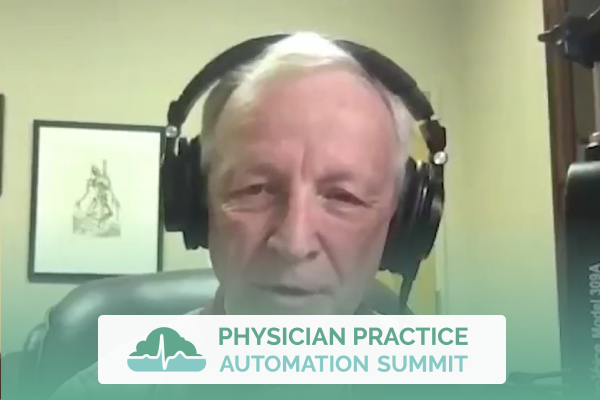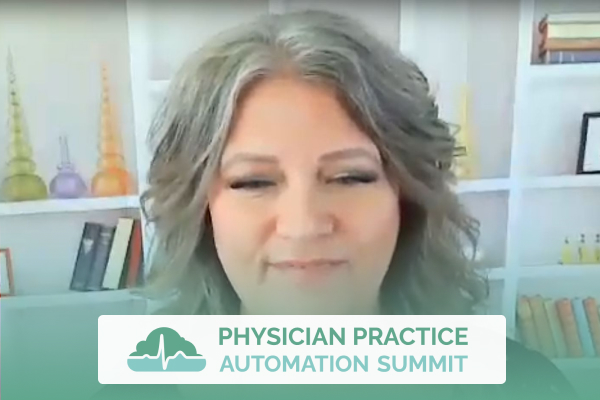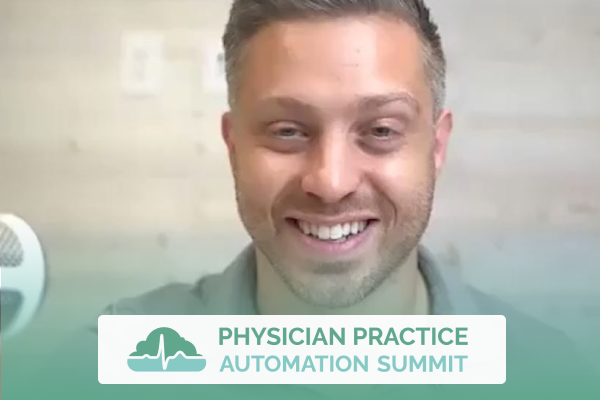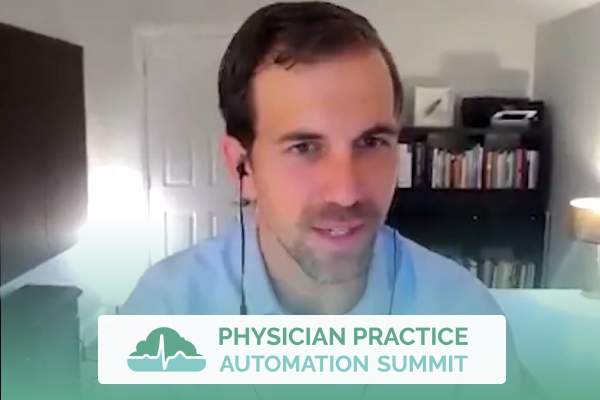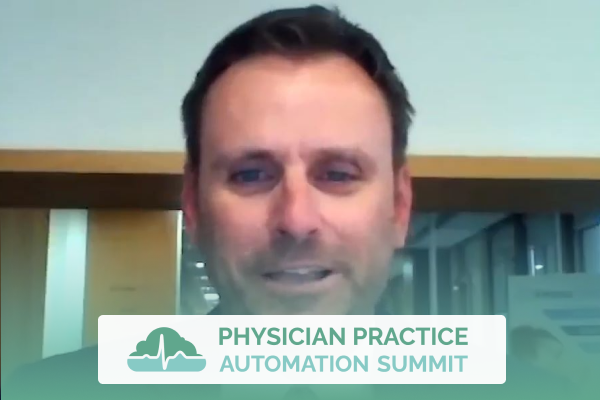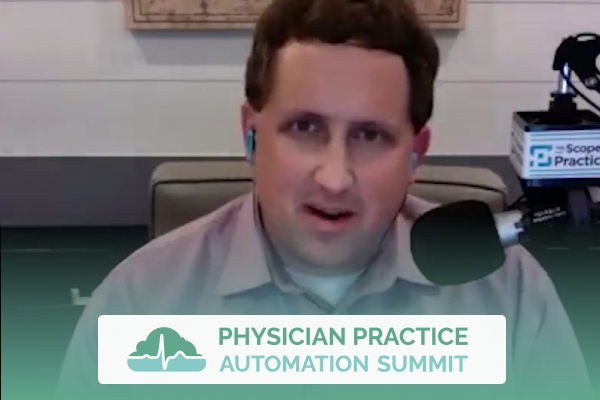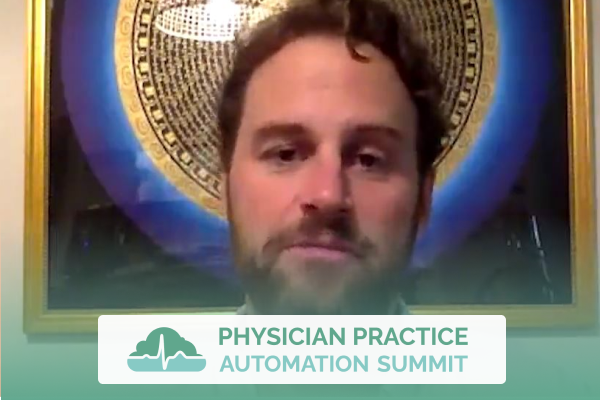Join the discussion below
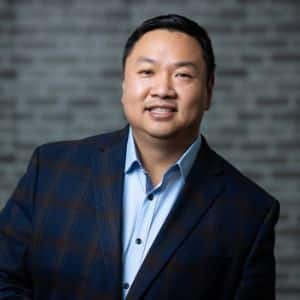
Dr. Ruan is the Founder and CEO of Texas Center for Lifestyle Medicine. He devotes his career in practicing and building systems that allow for efficient delivery of healthcare. He is a board certified internal medicine physician but also have advised with companies to improve their workflow, company culture, marketing,... Read More
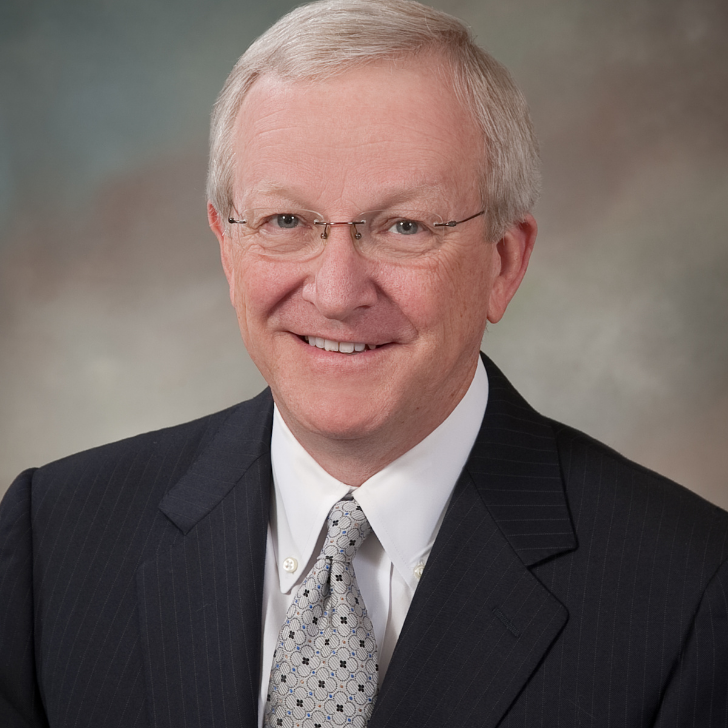
Dr. Randy Cook brings more than four decades of bedside practice as a general and vascular surgeon to the Rx for Success Podcast. A well-respected clinician, educator, organizational leader, he holds certifications from the American Board of Surgery and the American Board of Preventive Medicine in the subspecialty of Undersea... Read More
Cheng-Huai Ruan, M.D.
Everybody, excited to introduce Dr. Randy Cook. He is the host of the Rx for Success Podcast, which highlights physician leaders reflecting on elements that they really like about the journey to success. Dr. Cook has spent more than four decades as a general and vascular surgeon, and is board certified by the American Board of Surgery as well as by the American Board of Preventative Medicine. And he is a coach and he is a executive physician coach, which is someone who coaches other doctors to really balance their life, their business, and the fact that balancing the life requires a much deeper structure than we were taught in medical school and residency. I think this is something that’s really, really needed. I’m so excited to have Dr. Cook on today’s summit. Welcome to the summit, Randy, so happy to have you here.
Dr. Randy Cook
Thank you so much. It’s a great pleasure to be here.
Cheng-Huai Ruan, M.D.
Now, your introduction included a lot of different things. But maybe the concept of executive physician coach is lost on me ’cause I didn’t know this thing actually existed. So how did you sort of land this role? And is there a story that that landed you into this role that we can share with us, so we should really try to understand what’s happening here?
Dr. Randy Cook
If you’re in the mood for a story, I’ve got one.
Cheng-Huai Ruan, M.D.
Yes.
Dr. Randy Cook
It’s not so much that I landed in the role, as the role landed on me. I was, I guess, around six or eight months away from my retirement, although I made that decision to retire from a clinical practice all of a sudden. I frankly had gotten into some disagreements with the suits, if you will. I don’t wanna work with them anymore. And I had made the decision that I was going to retire. Very nice lady named Rhonda Crow that I had worked with in the past, the last, slightly more than a decade of my practice, I had worked in chronic wound care and hyperbaric medicine, and I had worked with Rhonda within the same wound care management organization, so we knew each other, but I had not seen her for a while. My hospital had separated from that company and connected with another country. I hadn’t, been a long time since I’ve talked to her. Anyway, she called me out of the blue, gave me a cold call, and the basics of the call were, “I’m not with the old company anymore and I’ve decided to start my own company, and it’s gonna be executive coaching for physicians, and I wanna promote it with a podcast.” She knew, because of our previous association, that I had a bit of a connection with radio, although my radio connection goes back to the days of the vacuum tube.
But in any case, she thought that I might be a good fit for that. So we talked about it. And the idea was that it was to be prescription for success. We would interview successful physicians and talk about how they arrived and where they are in the process of getting there, so that’s how the conversation started. And then toward the end of it, she said, “Oh, and by the way, I’d like you to be a coach.” So I guess she had hooked me, she had reeled me in, and I knew that I was gonna have some time on my hands. So I agreed to take on that role. I signed up for an instructional course and got my boards, if you will, in coaching, and we were underway. So that’s my long winded story of how I became an executive coach.
Cheng-Huai Ruan, M.D.
And here you are, that’s awesome, thank you. So why do you think that doctors need coaches? What’s so important about it?
Dr. Randy Cook
You know, there could be a lot of answers to that, but for me personally, and based 100% on my final years of experience in clinical practice, I could see that as physician, we either are in the process of or we have already ceded control of the space that we work in, We are no longer in control of clinical decisions, at least, to the extent that we should be, and there’s just been a really incipient invasion of what should be the territory of physician decision making. It has been completely overtaken by people who have no idea what it’s like to practice medicine and what our lives are about.
So I think that it’s very important, not only for the mental health of physicians, but for the people that we serve to make sure that we regain control of that territory. And in order to do that, you have to be able to communicate with, you have to speak the language of the corporate types that are now in control of the medical space. And you don’t learn that in medical school. So for that reason, I am very convinced that physicians need, not all physicians, but a lot of physicians really need some help to learn how to negotiate that landscape because it’s pretty treacherous.
Cheng-Huai Ruan, M.D.
Yeah, I mean, not only are we not trained in medical school, I feel like we’re trained to do the opposite, because, as physicians, you were trained to follow a certain standard of guidelines and don’t go outside the guidelines, and if you do, you might get into trouble. And if you get into trouble, all sorts of hell will break loose. And that’s sort of the fear mindset, I believe, that we have. When it comes to business, in practice, it’s different, ’cause we have to innovate a little bit, and then we have to poke some holes at people. And that’s part of the leadership qualities that are there. And if I’m lucky, because I got to experience a lot of that. I was chief resident in NewYork-Presbyterian Queens since 2012.
And I got to experience a lot of that leadership side. And then, as a chief resident, I was really in between the firing of different squads that are aimed in different directions from the patients, to the payers, to the administrators, to the nurses, and so I got really got a taste of it. And I feel like that in America, that there’s a standardized almost, I shouldn’t say standardized, there’s a common culture amongst the physician community, almost like a sense of learned helplessness that comes because we’re sort of taught these things. Do you agree with that?
Dr. Randy Cook
That’s a good way to put it and to further amplify that, I don’t mean to imply that physicians don’t have any business sense. Up until very recently, the vast majority of physicians in the US were either self-employed or part of a group with which they participated in the management. It’s been a long-standing reality for a very long time. And it’s just within the last couple of years or so that that has shifted. And there are more either healthcare system employed physicians or hospital employed physicians than there are private practitioners. So it’s not that physicians don’t have business sense, but the nuts and the bolts of making your case and having some influence over the people that work for multimillion dollar corporations, multibillion dollar corporations, like insurance companies, is something that we really don’t have any real time experience with. And it requires some instruction for most of us, I think. Interestingly, a lot of people seem to fall into it very naturally, and they’re very successful at it. But I think for the majority of physicians, they think, “Look, I speak for the patient here, surely I’m gonna be listened to and people are gonna do what I say.” And I can assure you, the last two years of my practice indicated to me that that is far from the truth.
Cheng-Huai Ruan, M.D.
You know, that’s exactly what I saw during the pandemic. I think a lot of physicians speaking out, saying, “I want to be the person, be the voice for my patient.” And then all of a sudden there is this mass, we call it a cancel culture where everything just becomes in question, right? And I think that over the last year and a half of the pandemic, we’re really seeing how the landscape of attitudes, not just physicians, but medical students and residents are being used in military terms, called frontline physicians, for example, right? And I actually think that that’s a big issue because it puts the physician into a hero’s role, which, and that’s problematic is because, as physicians, we work better as guides and let our patients be the actual heroes.
Yeah, so I think the expectations have changed over time and we’re really seeing it at its apex right now. I don’t know if it’s apex, it might go even beyond that, right? So I do think that coaching from someone who’s seen the changes in medicine, the changes in culture, in social media understanding really provides some value, because right now, I think there’s almost a bit of a victim mentality amongst physicians too, like, oh, you didn’t have it, I have it, right? For some reason, the previous generation always had it wrong for the younger physicians and vice versa, right? But I think we really have to stop that linkage, right?
Dr. Randy Cook
Yeah, I think you’re absolutely right about that. And the other thing that I’ve noticed about newer physicians, and I wanna be able to say this without insulting anyone, but they have come into the world of medical practice with a mindset, and an attitude, and a level of understanding that is absolutely way different from the one that I practiced in. I practiced for 44 years. The people who trained me were children of the Depression and they had had a substantial amount of experience dealing with real world problems and solving real world problems before they ever came into their own as a professional. And those values were passed on to those of my generation, the baby boomer generation.
But the current generation of physicians, the millennials, if you will, and the others, the Gen X haven’t experienced that. They have neither experienced the difficulties of the economic depression of the ’20s and ’30s, nor have they received that instruction directly from someone who has. They have come into a world that operates profoundly differently than what I encountered. But yet, and I don’t mean to say that that renders them incompetent, but I do think that it puts them in a position of being, gosh, I hate to use the term, less informed, but there is some truth in that. And once you move into the world of big money, and let’s face it, there is a lot of that in medicine today, you begin to understand very quickly, that the regard and the admiration and the appreciation for your goals and aspirations and your empathetic spirit are not as powerful as you thought so.
Cheng-Huai Ruan, M.D.
Right.
Dr. Randy Cook
Yeah.
Cheng-Huai Ruan, M.D.
And I tell you what, I’m a millennial, so I’m a younger physician, I’m definitely not offended, but I completely understand where you’re coming from because… So I was born in China and my parents went through the Chinese Cultural Revolution, which is basically its own trauma.
Dr. Randy Cook
Sure.
Cheng-Huai Ruan, M.D.
Right? And both my my parents are doctors. My mom’s a Chinese doctor and my dad’s an MD-PhD. So I think that the language is different. But the other thing is, I think resiliency has to be taught. And this is where I think coaching really comes in. And I think that not only does resiliency has to be taught, it has to be demonstrated by someone who have seen much greater and better things. And we can’t be the ones that say that, “Hey, we know everything.” We have to be the ones to say, “Hey, I’m always in a perpetual state of constant never-ending improvement. Who can I learn from?”
Dr. Randy Cook
Precisely.
Cheng-Huai Ruan, M.D.
Right?
Dr. Randy Cook
Yeah, and it sounds like, I mean, despite your millennial status, it sounds like that your mentors, because they were not raised in the US, they were raised in China, you got the same message that I did from the children of the Depression. And that is, it’s not always gonna be easy.
Cheng-Huai Ruan, M.D.
Right, I used to call it immigrant mentality. And so we actually covered this whole topic on another part of the summit about cultural differences in immigrants in general, but I do you think that what you’re saying is true, and these are just natural occurrences. But what we are in right now is we’re in the state of conundrum at this point, and the conundrum is that you have technology and technology has excelled far past laws and litigations and practices of medicine. I mean, telemedicine cross state lines, you can do very easily. We actually did a telemedicine with someone from Abu Dhabi the other day, right? So we’re in this age right now where the world is getting a lot smaller. And when the world gets smaller, a lot of differences that we perceive as younger physicians, we’re like, “Oh, our father, grandpa never really experienced this in the digital side. They don’t really understand social media, they don’t really understand what it takes to sustain a presence.” And I think those attitudes were developed from our own traumas, because I think that with technology comes newer traumas, and we have to adapt-
Dr. Randy Cook
I couldn’t agree with you more.
Cheng-Huai Ruan, M.D.
Right?
Dr. Randy Cook
Yeah.
Cheng-Huai Ruan, M.D.
So how do we deal with this? I mean, so you’re executive physician coach. So if I’m coming to you as a younger physician, I’m like, “Hey, you know what? Social media is really bothering me. There’s so many things that’s put out there from COVID and ivermectin and Regeneron, and all this stuff like that. It will hit as apex and all of a sudden, I feel like that the me as a physician, I don’t know how to tell that to my patients. My patients are seeing Dr. Google 20,000 times than they’re seeing me, how do I deal with that?” What would you say to that?
Dr. Randy Cook
I wanna make sure I understand the question. So you’re asking me how do I help a potential client connect with patients better?
Cheng-Huai Ruan, M.D.
That’s absolutely correct, yes.
Dr. Randy Cook
Yeah.
Cheng-Huai Ruan, M.D.
In the modern day, yeah.
Dr. Randy Cook
Yeah, well, I hope this doesn’t begin to sound Pollyanna-ish, but to approach that particular issue, I think the coach would be well advised to invite the client to think about why they’re doing what they’re doing. And something that’s very important for everyone to understand, particularly this audience, but everyone is that coaching is not teaching. It’s not instruction, it’s not providing solutions. The purpose of coaching is to get the client in touch with their own motivations so that they can do what is fulfilling for them. Just coincidentally, I happened to listen to a podcast today from one of my favorite podcasters, a gentleman named Shankar Vedantam, who has a podcast called Hidden Brain.
And at the end of every summer, he does a series of podcasts called You 2.0 where he talks about things that are very personal or that should be very personal to everyone. And the subject of this discussion today was understanding your purpose. And, here again, this is one of the things that I think might be overlooked by the modern day physician, and that is just exactly what is the purpose. And for me, and for all the satisfied, for all the physicians that I have known that were satisfied with their practice, it has to do with the connection that you make with the patient that is very personal, and the empathetic sharing of their problems, and your ability to help them through those problems, because many times, it’s got nothing to do with doing an operation or writing a prescription.
It’s much more complex than that. So the answer to your question is, if you’re the client, I’m gonna say to you, “Chang, we need to talk about what you believe your purpose is. Let’s see if we can identify your purpose.” And if your purpose aligns with significant empathetic connections of that sort, then we can begin to talk about how you get in touch with that and how you amplify that. And if it’s not, and it might not be, people sometimes come into medicine because their dad did it or because they thought they could make a lot of money or for a lot of other reasons. But if it’s not that, then we need to talk about where you might be able to identify your purpose and take it from there. Does that make any sense?
Cheng-Huai Ruan, M.D.
Absolutely, I went through this mental challenge, if you will, a few years ago before I started Texas Center for Lifestyle Medicine, where I really wanna showcase to myself and I had this sort of, I went through a guided imagery experiment with actually a mind body medicine coach. And she said, just just flip the script a little bit, “You’re teaching yourself right now, and you’re teaching yourself the idea of what your core values are. How about list your core values of what you perceive to be important in your life, and categorize everything that you’re doing in your life into any of those core values.” I came with five. “And are there anything that’s outside of those core values?” So when I did that exercise, I realized, about 60% of what I did was really outside of my core value, because I, by definition, I’m a people pleaser, so I want to make sure that people were happy and patients are happy, my partners were happy, and my administrators are happy, as a hospice director, the hospice is happy, the hospital’s happy.
And I came into this zone where I broke down and I realized that I’m always living in a zone of demand and someone’s making the plans for me. And that’s what’s really caused my burnout, and I just felt like this stuck on this hamster wheel. So I think your question of, what is your true purpose, is something that people don’t ask themselves enough. And in fact, most people, I think, lose it, but when you think about it, it becomes a reinvigorated relationship with yourself, so you can do the things that’s really essential to the core value so-
Dr. Randy Cook
Exactly.
Cheng-Huai Ruan, M.D.
As you’re saying that, I was going back into my old self and I think this was 2016, and coming up with what those things. But then, you know what, younger physicians like myself, millennial, we are inundated with technology. I have Apple Watch, I get text messages on there.
Dr. Randy Cook
Even the old man’s got one.
Cheng-Huai Ruan, M.D.
We get notifications, and some people don’t know this, but I used to do a lot of digital editing and digital media photography. And the way that we as consumers consume content is very different, it’s very fast. It’s very attention deficit-like. And so I think it was it was the 1990s, the mid ’90s is the MTV generation where there’s newer shows that utilize footages. We call them B-roll footages, A-roll footages that were about two seconds apart, so two seconds, two seconds, two seconds, two seconds. And at that time, that was a rare thing. In the older generation, like my mom, was just watching with me, and she’s like, “I’m really dizzy, why are they switching camera points?” So now the average B-roll footage, instead of two seconds is .8 seconds. So we don’t have a B-roll footage that’s less than .8 seconds. The person that’s consuming information will either go to the next channel or scroll down or something like that. I think the digital age has really taken us into a time period where we are actually dominated by digital media, and I think that’s what makes it hard for my generation. Does that makes sense?
Dr. Randy Cook
I couldn’t agree with you more. And for that reason, I am a real fan of getting people interested in the concept of meditation and yoga and separation from the noise, because you can’t organize that much data. It’s coming in so fast that you can’t organize it and it can be a serious stressor. So yeah, sounds like you’ve had a powerful insight.
Cheng-Huai Ruan, M.D.
Well, I think it’s just multiple trauma points for me, And I really have to shut myself off. I mean, today on Instagram, I actually wrote that we should really just shut off all notifications for a while, right? And even in this summit, I was interviewing Rahul Vohra who is the CEO of Superhuman, which is a digital platform for emails. And he said, “The best productivity tool is transcendental meditation.” I was like, whoa, I mean, I was not expecting this come out of a guy from Silicon Valley. And I mean, the best tool is to slow down, and I absolutely love that.
Dr. Randy Cook
Yeah, I’m just fascinated. And now that I’m no longer in clinical practice, I don’t go to a lot of medical meetings. But when I do, when I go to these educational meetings, I’m typically very excited that I’m going to be hearing from somebody that’s got a really special knowledge, and I’m gonna learn something that I’ve never heard before, and I’m looking forward to this. And I look around and half the audience has got their eyes on their phone.
Cheng-Huai Ruan, M.D.
Oh, man guilty. Yeah.
Dr. Randy Cook
That can’t be a good thing for us, Chang, I mean, come on.
Cheng-Huai Ruan, M.D.
No, no, it actually is not. And that’s why, I went to one conference when I was in San Antonio, where I walked in, and there was no cell reception. And then that was one of the best conferences I’ve ever been to ’cause-
Dr. Randy Cook
I thought you were gonna say you started having withdrawal symptoms.
Cheng-Huai Ruan, M.D.
No, no, I felt good.
Dr. Randy Cook
I bet you did, yeah.
Cheng-Huai Ruan, M.D.
I felt good, and I was able to be immersed myself. It was a leadership summit, right? So I was able to immerse myself forcibly by not having technology. And I purposely didn’t connect to their WiFi because I really didn’t wanna be distracted. And that became such an impactful thing. But now, it’s a regular practice. I mean, there’s days when I say, “Hey, family, no technology, everyone put their phones in this box when we go out and play some soccer,” right? And I think that has created more value for me than really anything else because even with younger people like myself, and even dinner tables, and even when we go out to lunch, everyone’s still on their phones as well, right?
Dr. Randy Cook
Yeah.
Cheng-Huai Ruan, M.D.
And we’re in a world of a state of demand, and I feel like physician suicide and physician depression is risen significantly ever since the pandemic, and there’s a stigma to it, right? And I feel like physicians are really alone or feel like they’re alone, they’re not really alone. They feel like they’re alone, I shouldn’t say that we, I’m a physician, we feel like we’re alone, and it’s because of the pressure that we really put on ourselves to avoid ourselves. We really put a significant amount of pressure to purposely avoid our self-worth.
And that comes from this sort of generational gap and generational divide, and what creates unity is some sort of a major stressor like the Great Depression, right? That creates unity, but what was supposed to create unity, which is like the global pandemic, right? It’s not, it’s creating more division, and something went wrong where we’re supposed to come together as human, as a giant tribe, multiple little tribes coming together this giant tribe, but somehow, we’re being ripped apart and apart by the current generation by what’s really going on globally. I don’t know why, but I do think it’s because there’s initiatives within the public media to create conflict, and algorithms do it really well, So we can get to continue to click.
Dr. Randy Cook
You’re absolutely right about that. And, quite frankly, I think that I understand how that happened. I actually was a youngster when mass communication through television became the thing. Of course, people were as attached to their radios prior to my arrival, but the television began to take the place of that. but there’s a very interesting thing, a very interesting phenomenon in existence during my childhood and it persisted for a while, and that was the Federal Communications Commission. I have no idea how it was done in in other countries, but the Federal Communications Commission, when they started trying to determine what they were gonna do with this incredible technology that allowed us to transmit sound and later pictures over the airwaves.
How are we gonna manage this? And so they licensed that so the airwaves for communication between law enforcement and communication between air traffic controllers and things of that nature. And then there was one that was put out there for entertainment. But in exchange for broadcasting entertainment, the licensees were required to put something out there that was strictly in the public interest, and that’s it. And that’s where we got network news. And in those days, the network news divisions were strictly separated from the entertainment divisions of those networks. And the people that reported in those news organizations had a level of objectivity that was to be admired as did newspapers, for example.
And it meant that the space for disseminating news and disseminating information was sequestered in an area that was totally separated from the profit motive. All that changed when we got the cable. And all of a sudden, news organizations became profit centers. And when they did, they chose an audience. And when you are in the business of commercial broadcasting, the number of eyes on you equates proportionately with the amount of money that you’re gonna make. So what happened at that point was, these different organizations chose which audience they were going to play to. And suddenly, objectivity didn’t matter anymore. It’s just been a fascinating phenomenon to me, but that’s exactly how it happened.
Cheng-Huai Ruan, M.D.
It’s not so different. It’s really not so different from what’s going on today. So I think the thing here is we make it through this, then we have established some level of resilience or some level of understanding of what resilience is to incorporate into our own operating system to propel for the future, right? And I have to look forward to that, you know?
Dr. Randy Cook
Let’s hope so, you gotta be fixed.
Cheng-Huai Ruan, M.D.
Yeah, yeah, so let’s go back to the coaching for a little bit because I think we just had a really, really nice generational divide discussion. For a second.
Dr. Randy Cook
Yeah, sure.
Cheng-Huai Ruan, M.D.
Because I really want you to understand what you just told me, this small story is very impactful because it really makes me appreciate what you saw earlier on in media. And now that I’m thinking about it, what you just described as a much bigger shift than what’s going on with us right now. And and it makes me really appreciate that there are things that we can do, and we can learn from people who’ve really experienced that. But let’s talk about coaching for a second, because I really don’t understand the difference between a life coach and a career coach, or is there a difference in between?
Dr. Randy Cook
There is a difference, and it is relatively subtle, and different coaches take on whichever space they want to operate in. But from the standpoint of executive coaching, I would say that the significant difference is, we want to engage with people who have an aim toward becoming leaders in whatever their organization might be.
Cheng-Huai Ruan, M.D.
Got it.
Dr. Randy Cook
In the more generic life coaching, I think you focus more on a much broader picture. How are you dealing with your family? How are you dealing with your personal life? How are you making decisions about your career? And where you want your career to go? And that sort of thing. But executive coaching is focused much more on being involved in the decision making processes of organizations. That’s where the executives live.
Cheng-Huai Ruan, M.D.
Gotcha, so then from what executive physician coaching really refers to, is somebody who really wants to be a leader in whichever sector that they are, and may not necessarily have all the tools or the tenacity to get to a point. Whereas, life coaching is more about personal development, right?
Dr. Randy Cook
Exactly.
Cheng-Huai Ruan, M.D.
Personal development, but yeah.
Dr. Randy Cook
And it doesn’t, I don’t mean to imply that executive coaching is for somebody that wants to be the CEO of Blue Cross, Blue Shield. It’s not that at all. It can be a tool to make a physician much more effective at serving on their various medical staff committees or even more importantly, perhaps, the board of directors of your hospital, or something of that nature, because when you find yourself in that environment, of people who are peppering you with business speak, you’re at a great disadvantage unless you have some familiarity with the way they communicate and the language that they use, and the tools that you can use to exert influence.
And it’s quite a bit different from patient care, for example, where you walk in to the room, you are immediately considered to be an authoritative figure, and that you have some answers. In the boardroom, you are a person who is entitled to an opinion and to make your case for where you think the right direction might be for the organization to move ahead effectively, but you have to have some facts to back it up, and you have to be able to present it in a way that makes sense to people who think in terms of spreadsheets and calculators.
Cheng-Huai Ruan, M.D.
Yeah.
Dr. Randy Cook
It’s entirely different from, you need to get your COVID vaccine because it’s not only good for you, it’s good for everybody around you.
Cheng-Huai Ruan, M.D.
Yeah, different discussion.
Dr. Randy Cook
It is, and as physicians, we live in that-
Cheng-Huai Ruan, M.D.
Right.
Dr. Randy Cook
Secondary, we expect to be, and we usually are respected and believed because we have special knowledge of the pathophysiology and natural history of disease. Whereas in the boardroom, the reaction that you’re gonna get is, “Where do you come off telling me that this is what we ought to be doing? How do you know this is the right thing to do?”
Cheng-Huai Ruan, M.D.
Right.
Dr. Randy Cook
Or how to be persuasive in that atmosphere.
Cheng-Huai Ruan, M.D.
Yeah, it’s such a different dynamic to, and I’ve seen this firsthand. I think recently, a friend of mine is an ER physician, she was thrown into the leadership role because the previous person quit. And she doesn’t, she’s a great physician, wonderful physician. But then all of a sudden, the hospital dynamics and politics really kicked in, and then there was just a lot of overwhelm. And I think that I see a lot of physicians going through the same thing, is that you’re put into this position that you weren’t really trained for. And then making decisions that’s based on things that are really outside the comfort zone, right?
Dr. Randy Cook
Exactly.
Cheng-Huai Ruan, M.D.
As you said, like business, for example, right, or team and organizational skills, or leading a team culture experience and stuff like that. And we are only as good as the things that we are taught. And I learned in an environment, in a residency or fellowship training that’s taught me about specific values, I’m gonna bring that onto the table, but in real life, that’s not how it is, because you’re in a room with MBAs and you’re in a room with JDs, that’s even worse.
Dr. Randy Cook
Indeed.
Cheng-Huai Ruan, M.D.
And so a lot of like, the language that’s spoken is assumed language. And so I think that every everything gets lost in translation. I actually think that’s why there’s very few physicians and leadership positions in hospitals, and committees, and government in general. And we really gotta change that.
Dr. Randy Cook
The fascinating thing to me, Chang, is that, in my early experience being a board member not only in my practice group in Florida, but also in the hospital that I was associated with is, you spend a long time where you just don’t speak up because you’re really worried about exposing yourself as not knowing anything.
Cheng-Huai Ruan, M.D.
Oh, yeah, I’ve been there.
Dr. Randy Cook
But the interesting thing is, one of the greatest discoveries for me in the course of all of this was, I’d go to these board meetings and I would hear presentations that go on seemingly endlessly. And at some point, I would say, “Wait a minute, I have no idea what you’re talking about. I need some details there.” And the really gratifying thing is that, as soon as I did that, somebody else would speak up, and it wasn’t always a physician. Sometimes, it was the banker or the lawyer or whatever. Yeah, what are you talking about? So you have to develop or somewhere along the way, you have to come to appreciate what we’ve always heard, and that is, there is no such thing as a stupid question. If you’re not understanding what’s being said, you’re absolutely entitled to an explanation, and that can be a very intimidating step to take.
Cheng-Huai Ruan, M.D.
It is, especially if you’re reacting to the culture of the environment. And I tell people, “If you don’t respect the culture, you don’t like the culture, you create the culture.”
Dr. Randy Cook
I like that, yeah. Yeah, write a book.
Cheng-Huai Ruan, M.D.
One day, one day. I’m one book down. My next one, I haven’t decided what to write yet. But let’s talk about your podcasts, well, I call it Rx for Success, we call it prescription for success though.
Dr. Randy Cook
Well, when we talk about it in the group of coaches, we call it Rx for Success ’cause it’s easier. It can be either way, we’re happy. call me anything, just call me, you know?
Cheng-Huai Ruan, M.D.
Right, so where can we find your podcast?
Dr. Randy Cook
The podcast can be found at, it’s very simple, rxforsuccesspodcast.com, we are on all the platforms. And we would love for people to become a subscriber, and not only are we interested in listeners, if there are physicians out there who listen and think that they might like to be a guest, we are always looking for additional guests.
Cheng-Huai Ruan, M.D.
Ah, wonderful. How do we access the executive physician coach program?
Dr. Randy Cook
Well, I’m glad you brought that question up. It turns out that there is a deal on, you can get a deal on this for those who are watching this recording. If you have any inkling that you might be interested in coaching, we have a special offer on, but you gotta act right now. Messing with you a little bit. Seriously, if you go to our website, which is mymdcoaches.com, it’s soon or practically, as soon as you get into the website, you will see an offer pop up for the first five subscribers who sign up to the podcast, you get a free 30-minute session. So all you gotta do is log on to mymdcoaches.com, look for that little banner that pops up there and click on the thing that says, “Yeah, I’d like my free session.”
Cheng-Huai Ruan, M.D.
Great, and we’ll have that link with the description of this video, so you can really easily just click on that. Well, I can’t tell you how grateful I am to have your voice on the summit, is because sometimes, there’s a lot of noise. And with a lot of noise, we really truly appreciate wisdom. And wisdom is not easy to come by these days and trust is not easy to come by these days. But I really appreciate you, really appreciate the fact that executive physician coaching actually exists. And I can’t wait to listen to the podcast. Well actually, I’ve already started listening to it already, but I can’t wait to listen to to some more.
But from a leadership standpoint, from a physician leadership standpoint, we need a whole lot more. And I think people who currently are listening and you’re thrown into a leadership position, medical directorship of a program or you’re thrown into discussion leadership position with pharma or some other companies. And if you just feel lost, really just click on the link, and it’s no risk and fill out the form, and then schedule your 30-minute session. And I think that if you listen to this, and you really appreciate what’s really going on the world, we wanna have at least 30 minutes for yourself that you dedicate to yourself, and just listen and listen attentively, listen actively, and make some applications, and that is how I got started with this actual summit. If I didn’t do that, I wouldn’t have made to summit. It took my 30 minutes of me just listening to a coach. So thank you for-
Dr. Randy Cook
Well, that’s good news.
Cheng-Huai Ruan, M.D.
It’s great news.
Dr. Randy Cook
I’ve really enjoyed being here, I’m so flattered, even you would ask me to be here, I’ve really enjoyed the conversation, and I hope that we’ll be hearing from some of the people that attend the summit. And by the way, I’m not the only coach in the group. There are five of us that are available right now. All of our handles for all of the various social media platforms are also on the website at mymdcoaches.com. And we would really love to hear from anybody that wants to check in with us.
Cheng-Huai Ruan, M.D.
Wonderful, Randy, thanks for coming on. Everyone, have a great day.
Dr. Randy Cook
Thanks as well.
Downloads

